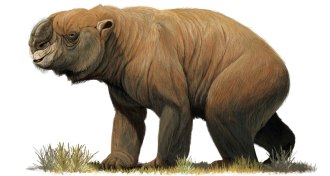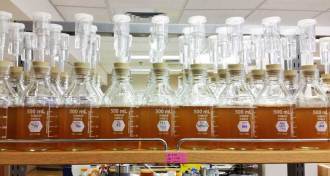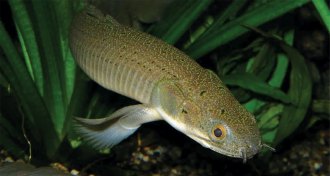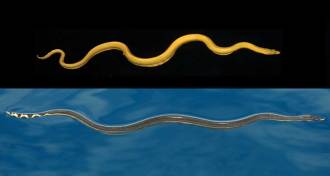Notebook
-
 Astronomy
AstronomyHow a meteor shower helped solve the case of the vanishing comet
A missing comet has been linked to a long-lost meteor shower, helping astronomers recover both.
-
 Paleontology
PaleontologyThis giant marsupial was a seasonal migrant
A new analysis suggests that Diprotodon optatum, a giant plant-eating marsupial that went extinct about 40,000 years ago, migrated long distances, much like today’s zebras and wildebeests.
-
 Health & Medicine
Health & MedicineAbout 1 in 5 teens has had a concussion
Almost 20 percent of U.S. teens have had at least one diagnosed concussion in the past, an analysis of a 2016 national survey finds.
-
 Psychology
PsychologyConfusion lingers over health-related pros and cons of marijuana
50 years ago, the effects of chronic marijuana smoking on mental health were hazy. They still are.
By Bruce Bower -
 Life
LifeThis biochemist brews a wild beer
Wild beer studies are teaching scientists and brewers about the tropical fruit smell and sour taste of success.
-
 Animals
Animals3-D scans of fossils suggest new fish family tree
Analysis of specimens from China implies ray-finned fishes evolved later than previously thought.
-
 Animals
AnimalsA researcher reveals the shocking truth about electric eels
A biologist records the electrical current traveling through his arm during an electric eel’s defensive leap attack.
-
 Environment
EnvironmentAir pollution takes a toll on solar energy
Dust and other tiny air pollutants can reduce solar energy output by as much as 25 percent in parts of the world.
-
 Tech
Tech50 years ago, West Germany embraced nuclear power
In 1967, Germany gave nuclear power a try. Today, the country is trading nukes for renewables.
-
 Climate
ClimateRising temperatures threaten heat-tolerant aardvarks
Aardvarks may get a roundabout hit from climate change — less food.
By Susan Milius -
 Planetary Science
Planetary ScienceMoons of Uranus face future collision
By studying variations in the rings of Uranus, researchers have determined the mass and density of the planet’s moon Cressida.
-
 Animals
AnimalsThis sea snake looks like a banana and hunts like a Slinky
A newly identified sea snake subspecies is known to live in a single gulf off the Pacific coast of Costa Rica.